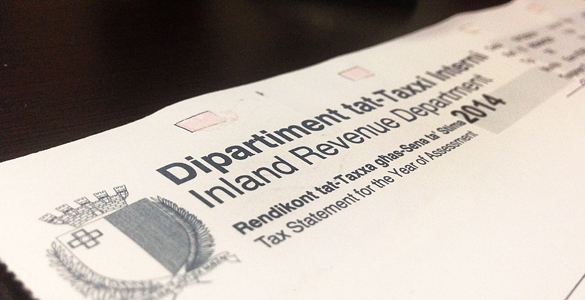The shift in priorities that has seen a wane in global and European appetite to take on the challenging task of threshing out a multilateral agreement on corporate taxation should be seen as an “opportunity”, says a leading practitioner, who believes it offers precious time for Malta to plan a smooth transition.
Speaking to BusinessNow.mt in his personal capacity, lawyer Wayne Pisani describes the dropping of international corporate tax reform from intergovernmental agenda as an “opportunity to better plan, assess and implement such reform.”
Earlier this year Finance Minister Clyde Caruana had revealed a planned overhaul for the entire corporate tax regime to move away from the current imputation system.
More recently, as energy around the issue seems to have abated and momentum lost, Minister Caruana shelved the plans, saying Malta “will not jump the gun” given that the international appetite for setting a minimum corporate tax rate has waned.

Although the Finance Minister recently doubled down on Malta’s opposition to tax harmonisation on a European or global level, Dr Pisani echoes economist Kristy Debono in saying that this is ultimately a question of “when, not if”,
The former Shadow Minister for Economy, Financial Services and Industry was reacting to the EY Attractiveness Survey’s finding that corporate tax reform is the number one issue on foreign investors’ minds when she said that Malta needs to negotiate for the best package “so at worst we will be equal to the lowest rate with other countries”.
Dr Debono however stressed that Malta simultaneously needs to pre-empt the consequences of harmonisation.
Dr Pisani says he expects fiscal policy to remain high, not only on the national agenda, but also at a European and international level, and called for a continuation of the approach that has generated so much success for Malta.
“We need to continue adopting measures to abate harmful tax practices whilst ensuring a simpler and more efficient tax system, both from a taxpayer perspective as well as administratively, consistently finetuning the workings of the tax framework,” he says.
This finetuning would need to take into consideration “the peculiar qualities of the Maltese economy and the sectors and industries in which taxpayers are operating,” Dr Pisani adds.
Dr Pisani is a Partner at Grant Thornton where he leads the tax, regulatory and compliance operations. He is also a member of the Financial Services Advisory Council. The views expressed here are entirely his own.
Two years since its birth, Moneybase features on Microsoft’s Customer Stories
Moneybase has now just been featured on Microsoft’s latest Customer Stories
Finance Minister confirms continuity of food and energy subsidies
Spending on food and energy subsidies as a percentage of the GDP will be at 0.7% in 2025
MHRA congratulates Glenn Micallef on EU role, highlights positive impact on Malta’s tourism and cultural sectors
The lobby group emphasised that Malta’s cultural assets and sports scene are key factors in attracting visitors and fostering economic ...






